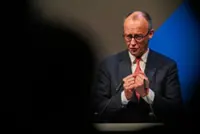LONDON: Twitter and WhatsApp are pushing back against the Indian government's request to remove content and weaken encryption in a move that could see Prime Minister Narendra Modi's government further tighten its grip on media freedom in the country, experts claim.
"The Modi government's tactic of trying to stamp out encrypted messaging and social media posts under the guise of public safety and lawfulness could spread elsewhere," said Daphne Keller, director of the Program on Platform Regulation at Stanford's Cyber Policy Center.





